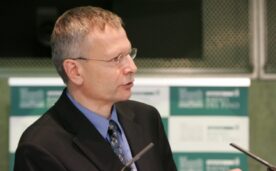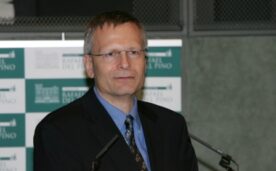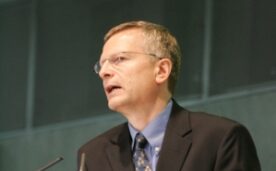The Rafael del Pino Foundation hosted the Master Lecture by Dani Rodrik entitled "Does globalisation have a future?", as part of the series of master lectures "Lessons from the crisis", on 24 June 2010.
Dani Rodrik said that "markets are becoming more and more global, and therefore the rules and institutions needed to supervise them must also be global. This is a very attractive vision, but I think it has many limits, first of all of a practical nature, because it is very difficult for governments to agree and put in place a coordinated global regulation. But even more important are the compelling reasons why such a universal set of policies and rules will not meet the needs of a group of countries that are different. The policies that India or China need are very different from those that Europe needs. Countries in the West have different views on the appropriate measures for financial markets, even among members of the European Union. And these are real differences that are not going to disappear because we assume they do not exist or no matter how many meetings the G20 holds. It is a dangerous path, because it can lead to agreements governed by the law of the lowest common denominator and these agreements give the false sense of having achieved a major accomplishment, when, in fact, they are not strong enough. We have to understand that this can only lead to limited achievements and, therefore, we have to create a global economy that is based on solid national regulations, which will mean that with different national regulations we will not necessarily have global markets. That leads to certain limitations of globalisation, yes, but that will make it more sustainable and healthier than the current one, which is based on this false path, in my opinion, of global rules.
Regarding the future of globalisation, Dani Rodrik argued that "The world economy is going through very hard times and to think that, whatever happens, globalisation will continue is a mistake. History warns us against complacency. We have seen globalisation rise and fall before and so we must understand that for a healthy global economy to exist it must be nurtured; it will not maintain its health on its own. I have always argued for a better balance between global markets and the powers of national governments to legislate. So I think we have to strive for a better balance between the view from a global markets perspective and the view of governments as they strive for economic growth and the harmony of national societies. I believe that over the last two or three decades we have gone too far and narrowed the room for manoeuvre of governments to achieve these goals. If we reconsider this, the global economy will recover; if not, we will still have problems on the horizon.







